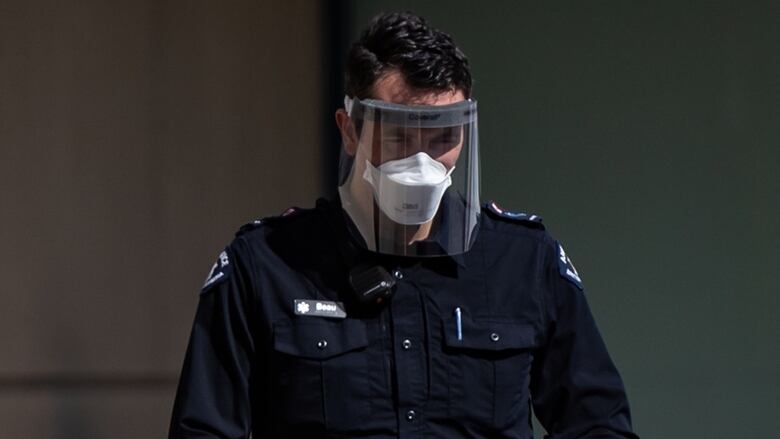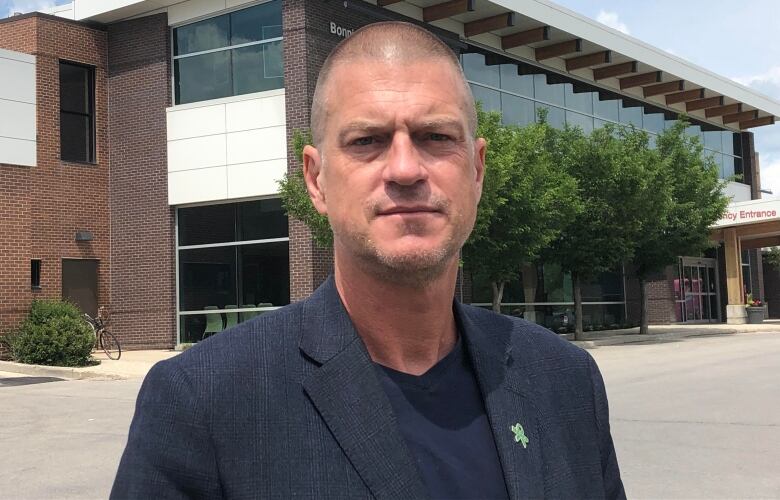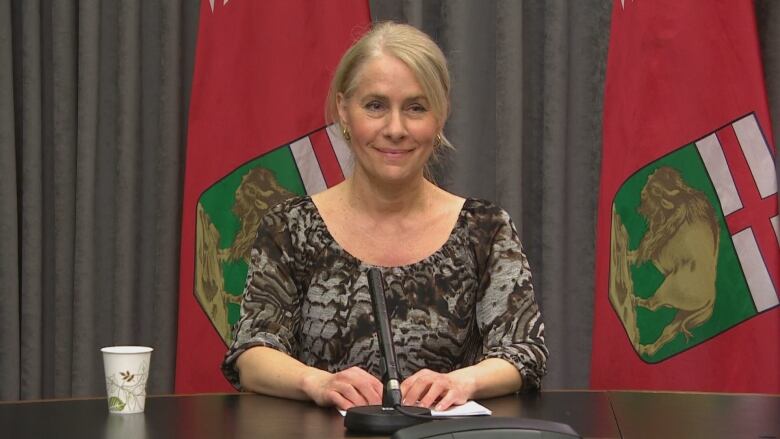'Lack of empathy': Rural Manitoba paramedics say province not providing proper protective gear
Safety top priority, first responders' equipment must be approved by the province: chief nursing officer

Paramedics in rural parts of Manitoba say they're not getting the same personal protective equipment ashealth-care workers in the bigger cities and that's putting them at higher risk of contractingCOVID-19.
The Manitoba Association of Health Care Professionals says rural first responders are being equipped with inferior or ill-fitting gear, or no gear at all.
That's prompted some health-care workers to buy their own equipment, says the association. But the province is warning they could face disciplinary action if they use it.
"PPE that has not been issued by [Emergency Response Services] is not approved for use in the workplace, as it potentially increases the risk of exposure to both the individual and other staff members," reads a memo to Manitoba health-care workers sent last Tuesday from Shared Health.
"Staff that continue to use non-approved PPE will be removed from the workplace and may be subject to discipline."
Bob Moroz, president of the MAHCP,says some of the association's members have acquired their own certified N95 masks and have had them properly fitted.

He doesn't see why the province would want toprevent health-care workers from doing anything they can to stay safe.
"People are continually being put at risk here because they don't have the proper equipment," saidMoroz.
"I understand that Shared Health doesn't want people using whatever it is they have in their car or garage. But it's a piece of equipment that's approved and is used in Winnipeg. It's fitted and it's proper."
Moroz says it's not only masks that are in short supply. He describes one model of a medical visor, shipped out by the province, as faulty.
"Those things make sense if you're standing perfectly still, not doing anything," says Moroz. "But paramedics are rarely standing still. If you're doing CPR, there's no way those are going to stay on."
Moroz says he's also heard of some gear being too small for many health-care personnel.
"If you're 5-10 or 5-11, a lot of these gowns just don't fit," he says. "The sleeve may reach somewhere between your elbow or your wrist."
Manitoba Shared Healthchief nursing officer Lanette Siragusa said Saturday she hasn't heard any reports of significant shortages of protective equipment in rural areas.
The province is "prioritizing our first responders," she said, and working with new vendors to send out more equipment.

Siragusa says any equipment used by first responders must be approved by the province, citing the possibility that some masks might not offer sufficientfiltration.
"[The] No. 1 priority is that they have the equipment they need to stay safe. I think there's a plan right now to distribute the masks, make sure the fit-testing is done."
The MAHCP says Siragusa's comments demonstrate a disconnect between provincial health officials and front-line staff, as well as a different standard for urban and rural health-care systems.
"Ordering and shipping sounds great in public statements," Moroz said.
"But I don't see consistentfollow-through to ensure the right equipment is available."
_______________________________________________________________________
Latest local news:
- 3 new cases of COVID-19 in Manitoba, bringing total to 253
- 'I don't want to see him die': Winnipeg woman fighting to visit COVID-positive husband in ICU
- 'Doing my damnedest': Family living in a shutdown world of COVID-19 juggles a lot with very little
- Worker at Fred Douglas Lodge personal care home tests positive for COVID-19
______________________________________________________________________
He's calling on the province to look at ways to approve the gear purchased by employees from other sources, rather than punishing staff who use it.
"There's a lack of understanding, and a bit of a lack of empathy, in terms of what these folks are trying to do to protect themselves," said Moroz.
"Instead they came down with a pretty heavy boot stomp and said 'if you use it, you'll be sent home and disciplined.' How does that make any sense?"
The MAHCP says in contrast, employees of the Winnipeg Fire Paramedic Service are being outfitted with high-end, reusable respirators.
Moroz says he's reached out to the province several timesfollowing last Wednesday's memo, but has not had a response to calls to better equiprural paramedics.












_(720p).jpg)


 OFFICIAL HD MUSIC VIDEO.jpg)
.jpg)



























































































